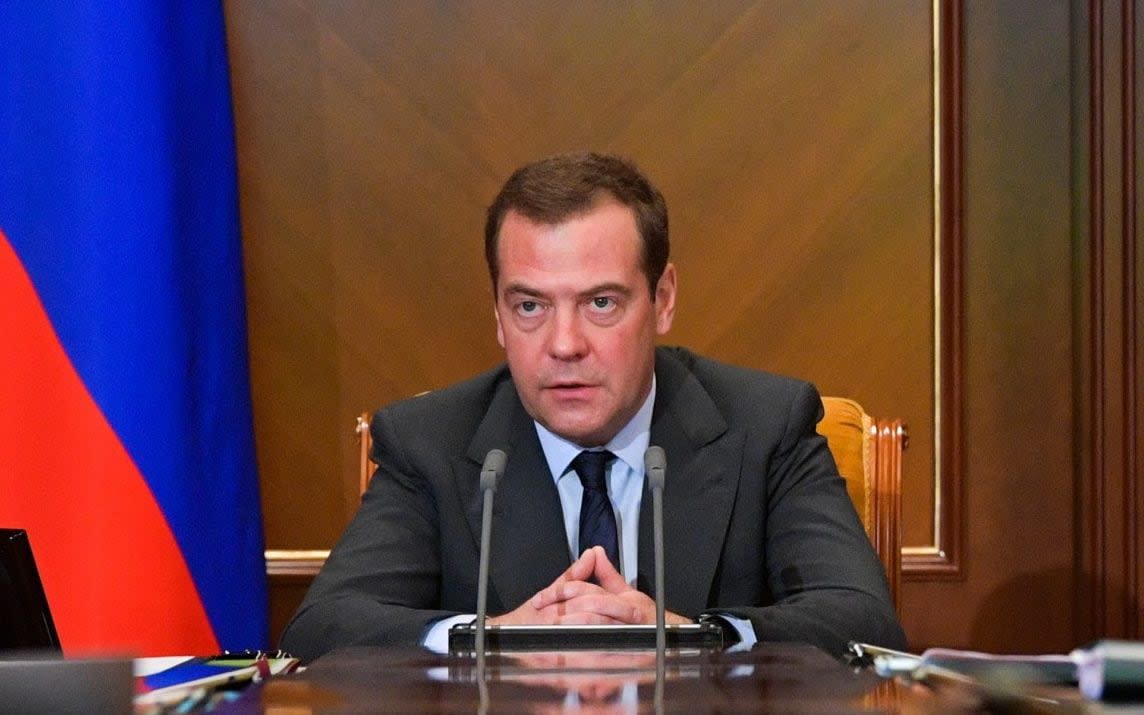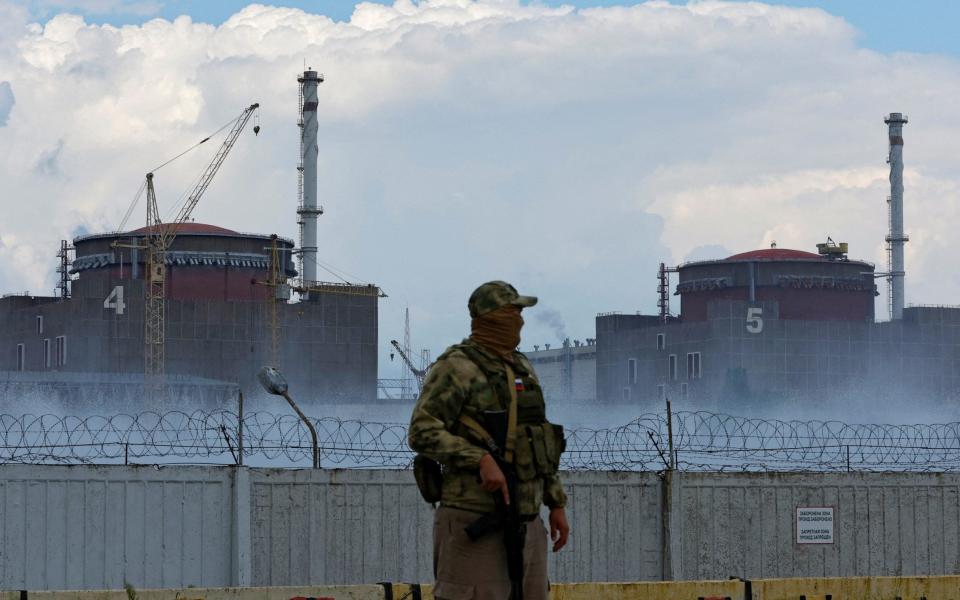'Nuclear accidents can happen in the EU too', Russia's ex-president warns

One of Vladimir Putin's closest allies has warned European nations that their nuclear power stations are vulnerable to "accidents", in a veiled threat of sabotage missions.
Dmitry Medvedev, a former president of Russia and deputy chairman of the security council, was responding on Thursday to reports that Moscow has shelled the Zaporizhzhia nuclear plant in Ukraine.
Russian troops have been using Europe's largest nuclear power plant as a base and shelling Ukrainian positions from within its bounds. Kyiv has been accused of firing on the plant in return.
“Kyiv scumbags and their Western patrons seem to be ready for the new Chernobyl,” Mr Medvedev said.
“Missiles and shells are getting closer and closer to the Zaporizhzhia nuclear power plant and radioactive isotope storage facilities," he wrote on the Telegram messaging app.
"They say it's Russia. This is obvious, 100 per cent b-------, even for the d------ Russophobic public... Even the UN doesn't believe it."
He added: "What can one say... One should not forget that there are nuclear power plants in the European Union too. And accidents are also possible there."
Grave concerns over fighting at nuclear plant
Earlier this year, Kyiv confirmed it used a Western-provided kamikaze drone to hit Russian targets nestled behind one of the Zaphrozhzhia plant's cooling towers.
Clashes at the plant have prompted international warnings of the radioactive disaster and calls for the introduction of a demilitarised zone to avert such a catastrophe.
During the five-month war in Ukraine, Mr Medvedev has moved from the liberal politician who dined with Barack Obama to one of Mr Putin's most reliable anti-Western hawks.
This week he was personally dispatched by the Russian president to check on military operations in the eastern Donbas region of Ukraine, meeting the leaders of pro-Kremlin breakaways in Luhansk and Donetsk.

Western nuclear plants have been an almost constant target for Russian spies over the years.
Between 2012 and 2014, the US Department of Justice revealed that three Russians had spent five years targeting energy infrastructure in 135 countries in the hope of gaining remote access to power stations.
Mr Medvedev once served as Russian president and placeholder for Putin between his terms in office.
Kremlin watchers say the 56-year-old law professor has been trying to prove his loyalty to Putin with radical, incendiary statements.
He said he was "hacked" after posting a statement on Telegram that "united, mighty and invincible Russia" would reclaim lands lost to neighbouring countries after conquering Ukraine. Mr Medvedev had posted to his 2.2 million followers that Georgia "didn't exist as a state" before joining Russia in the 1800s, and Kazakhstan was an "artificial" state.
Zelensky: 'Russia resorting to unconcealed nuclear blackmail'
The Zaporizhzhia plant, which was seized by Russian troops in March, has become the latest flashpoint in simmering tensions between the West and Moscow.
Volodymyr Zelensky, Ukraine's president, late on Thursday accused Russia of resorting to "unconcealed nuclear blackmail".
"Only the complete withdrawal of Russians from the territory of the Zaporizhzhia NPP and the restoration of Ukraine's full control over the situation around the plant will guarantee the restoration of nuclear safety for all of Europe," he said.
Ukraine accused Russian forces of firing rockets from around the captured plant, killing at least 13 people, in the knowledge it would be risky for Ukrainian troops to return fire.
The facility, which can provide power to some four million houses in southern Ukraine, has been kept operating by staff, forced to work at gunpoint by its Russian occupiers.
A pro-Russian official in Zaporizhia's puppet administration on Friday warned the plant could be "mothballed", without offering any further explanation.
"Soon (the Ukrainian authorities) will not receive anything, because, of course, we will save the nuclear power plant, mothball it, bring the [electricity] loads that we have to the liberated territories," Vladimir Rogov told Russian television.
Meanwhile, it was announced Ukrainian children would be taught lessons on how to spot and avoid landmines at school after returning from the summer holidays.
Andriy Vitrenko, deputy education minister, said "defence of Ukraine" would be added to the national curriculum, alongside regular maths and science lessons.
Officials have estimated that some 160,000 square kilometres of Ukrainian land will require demining after the conflict with Russia is resolved.
"National-patriotic education will be strengthened and there will be a separate block that will deal with anti-mine activities. So that children are aware of what can't be touched, what is dangerous for them," Mr Vitrenko said.

 Yahoo Movies
Yahoo Movies 
